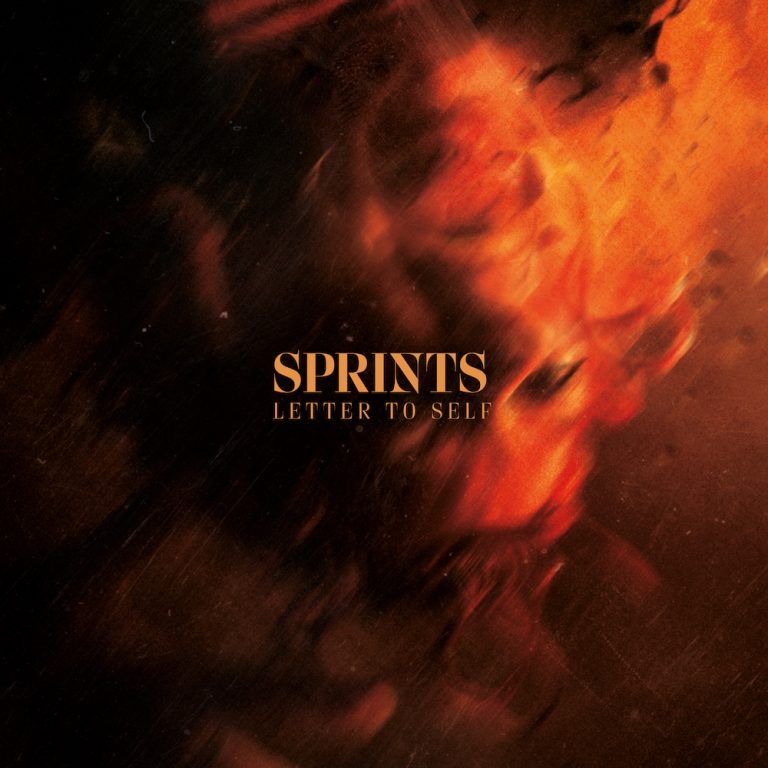With the 1960s, the subjective take, including so-called negative states, became popular music’s raison d’etre. By the 1990s, cynicism, self-loathing and misanthropy were on full display. Artists lambasted Platonist-Christian-capitalistic conditioning. Songs brimmed with self-lacerations and tales of sabotage, along with well-adorned projections and transferences. Fast-forward to the current day: positions and personas, expressed politically or aesthetically, are regarded as mere constructs. If rebellion was once a uniting force, solipsism now reigns supreme, prompting greater and greater fragmentation. Clearly John Donne, who avowed that “no man is an island”, didn’t anticipate the conditions of 21st Century life.
Following various singles and two EPs, Dublin-based Sprints, fronted by powerhouse Karla Chubb, release their debut LP, Letter to Self. Throughout the set, Chubb hones her gift for vulnerable and inflammatory vocals. The band, in turn, contribute wiry rhythms and cacophonic eruptions, reveling in distorted textures. The project as a whole, despite its unabashed expressiveness, is characterized by subtle restraint, particularly on the part of Chubb. Flirting with histrionics while employing a semi-confessional MO, she largely avoids collapsing into hackneyed postures or melodrama.
With opener “Ticking”, Chubb broadcasts the profound sense of disorientation that such bands as Model/Actriz and Heartworms similarly use as a starting premise. “Am I alive?” she asks, as if by posing the question she might rouse herself from a panicky trance. The band pivot between a stripped-down strum-and-riff approach and explosive accents. “Heavy”, too, shows Chubb seeking stability or confidence, though she has to settle for possible empathy: “Do you ever feel like the room is heavy?” The band again move between a drive-and-pummel mode and ringing noise-crests.
“Adore Adore Adore” spotlights the way in which a mix of attraction and repulsion can make for a powerful aphrodisiac. White Lung vocalist Mish Barber-Way’s ability to paint herself as an unconventional siren, notably via 2016’s Paradise, comes to mind, as does Courtney Love’s proto-impulse to render self-portraits both off-putting and seductive. “They never call me beautiful / they call me insane”, Chubb declares as the band transitions from choppy lines into windmill blasts, Chubb seeking, but not necessarily finding, some semblance of clarity.
With “Can’t Get Enough of It”, the band maneuver a turbid soundscape that recalls Silence Yourself-era Savages. “I can’t speak and I can’t dream / and I can’t sleep and I can’t leave”, Chubb spews, wrestling with various phobias. While Chubb’s lyrics and vocal performance tilt toward an over-normalizing of life’s nightmarish qualities (a dilution of experiences central to the postmodern and now post-humanistic zeitgeist), her directness also emanates a fatigued credibility, the band complementing her voice with forceful rhythms and roiling textures.
“I wear your name like it’s a noose around my neck”, Chubb offers on “Up and Comer”, venting envy, jealousy, resentment. Pushing her voice to the point of cracking, yet eschewing hysteria, Chubb sustains a certain poise, balancing determination and doubt. The track ends with Chubb repeating, “Here we go / the devil’s knocking at my door”, grazing cliché but remaining convincing, the band dishing out weighty chords and navigating loud-soft dynamics.
The 2020s are characterized by bipolarity; the life force rearing against and withdrawing from a constant cycle of threats. Artists testify to ambition and resignation, desire and objectification, the self and its erasure. As the world contracts vis a vis nationalistic developments, climate change and volatile economies, the individual screams louder than ever (frequently in tongues), then foundering into tight-lipped silence. Sprints join their cohorts in a perilous yet fertile exploration of existential dissonance, striving for and often achieving an urgency and vision strikingly their own.

